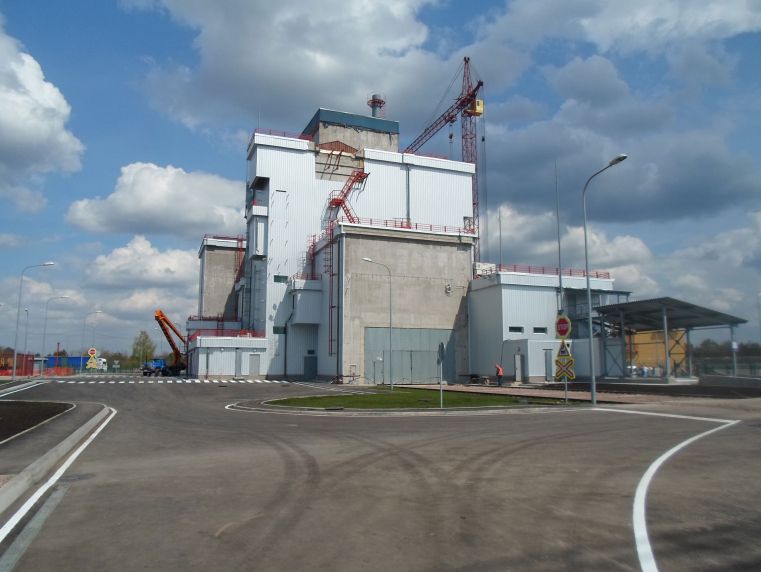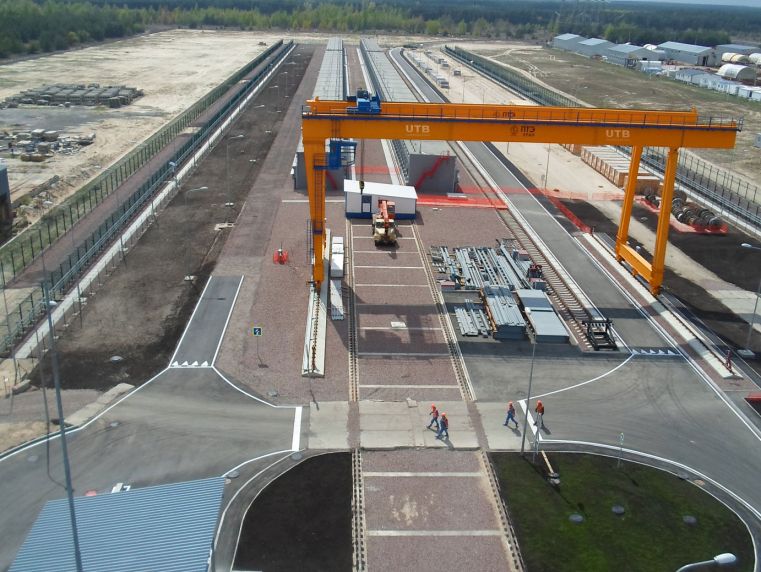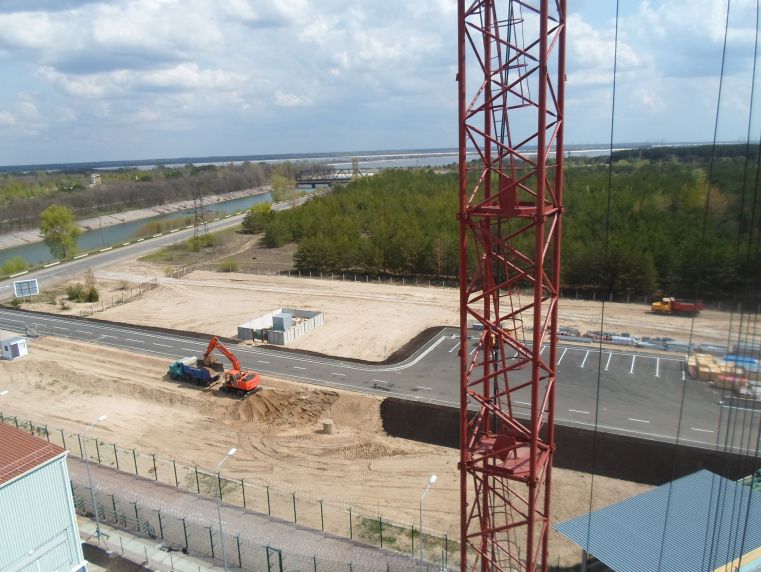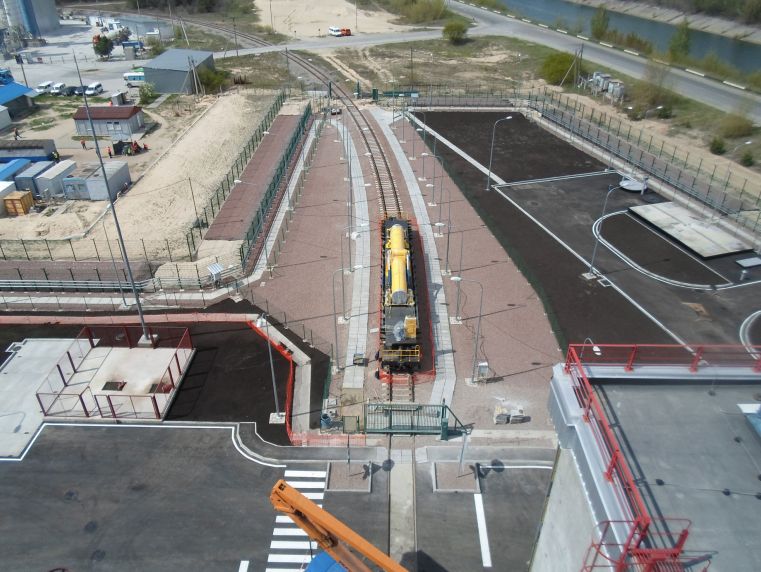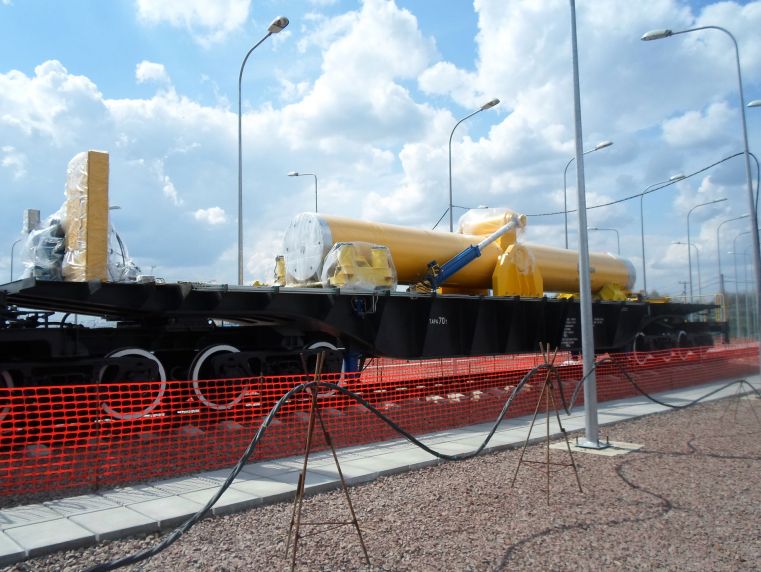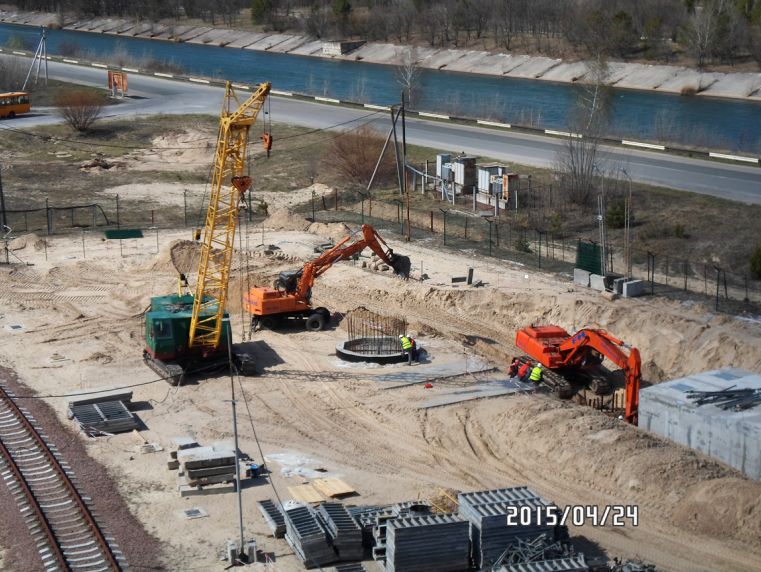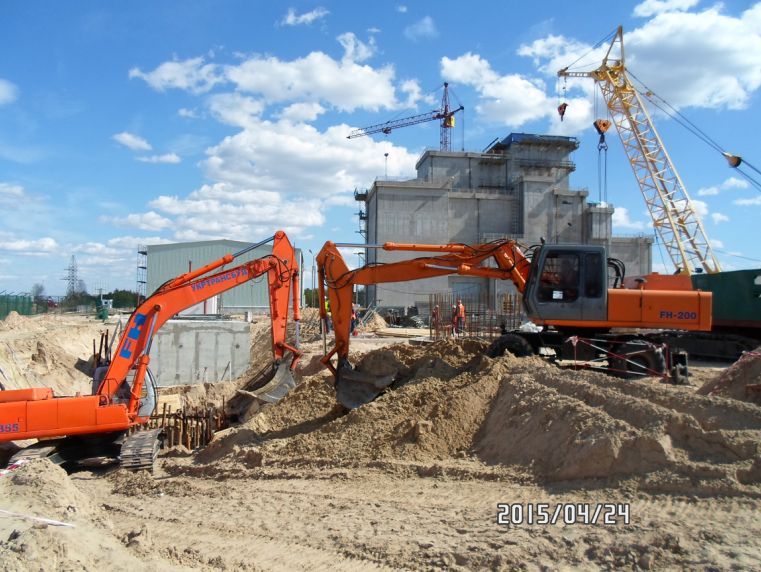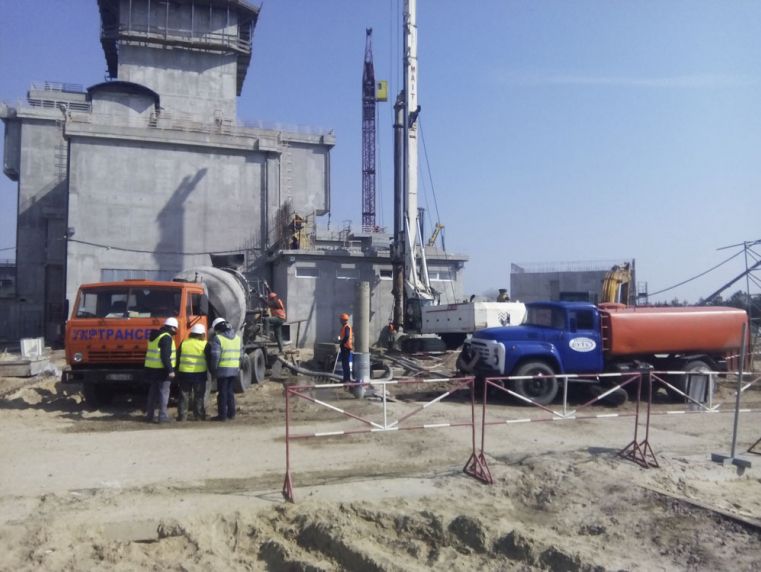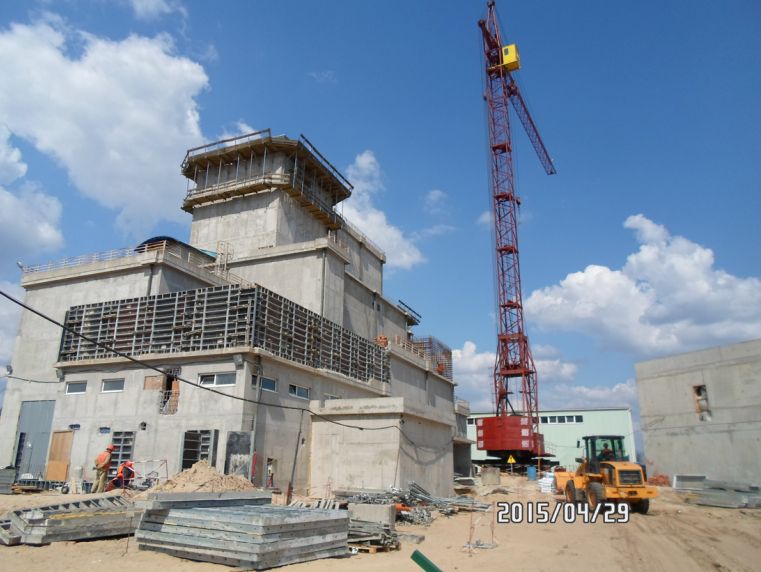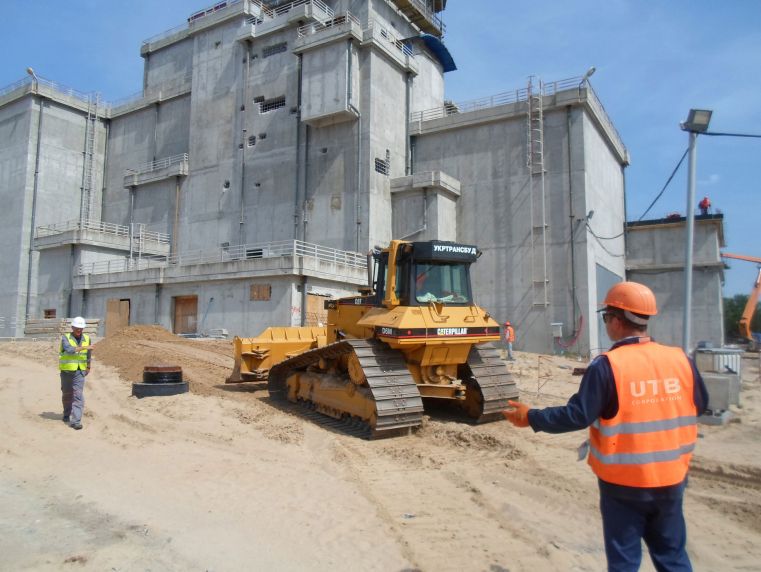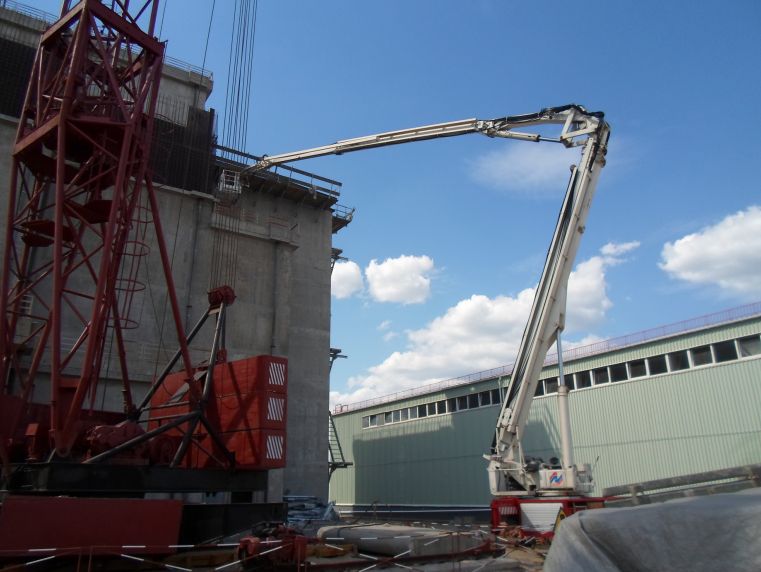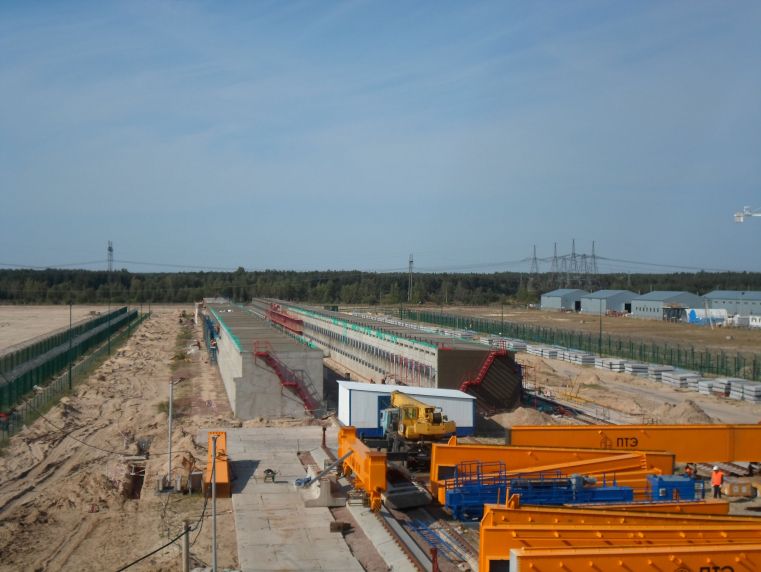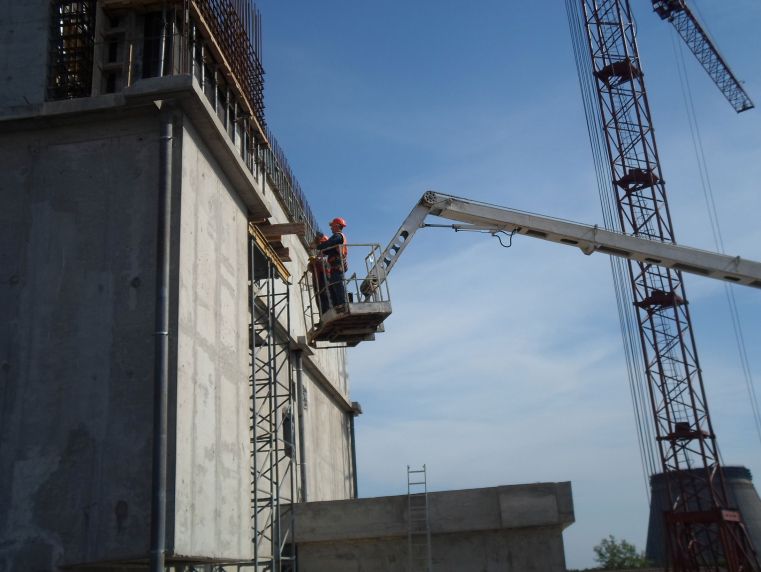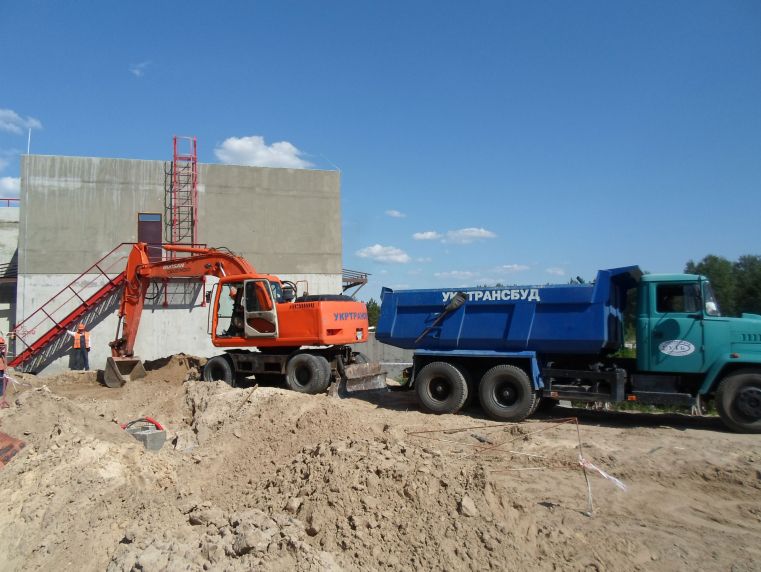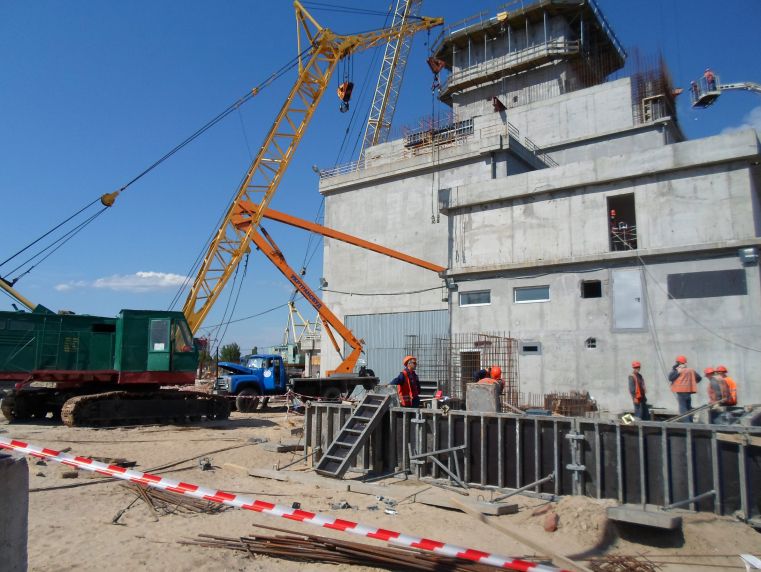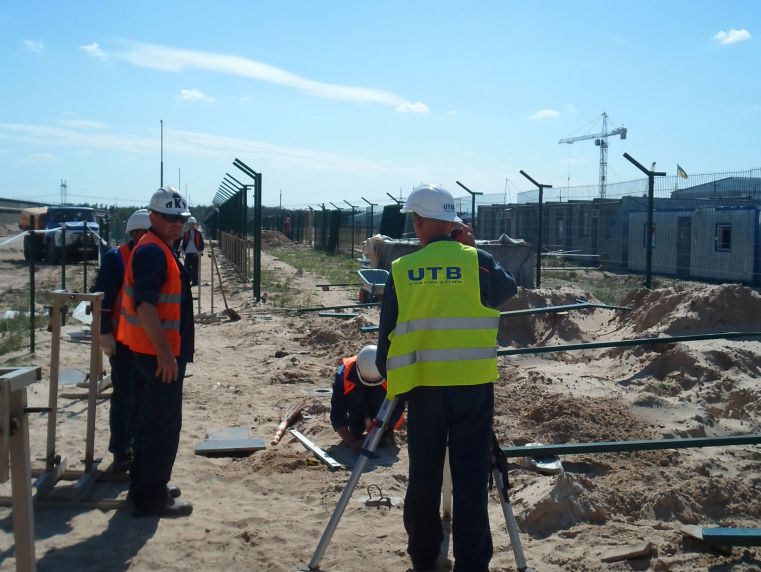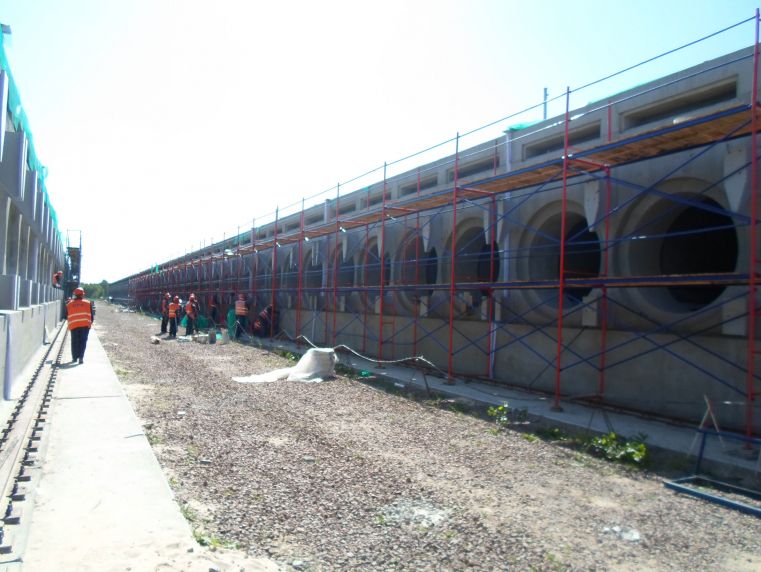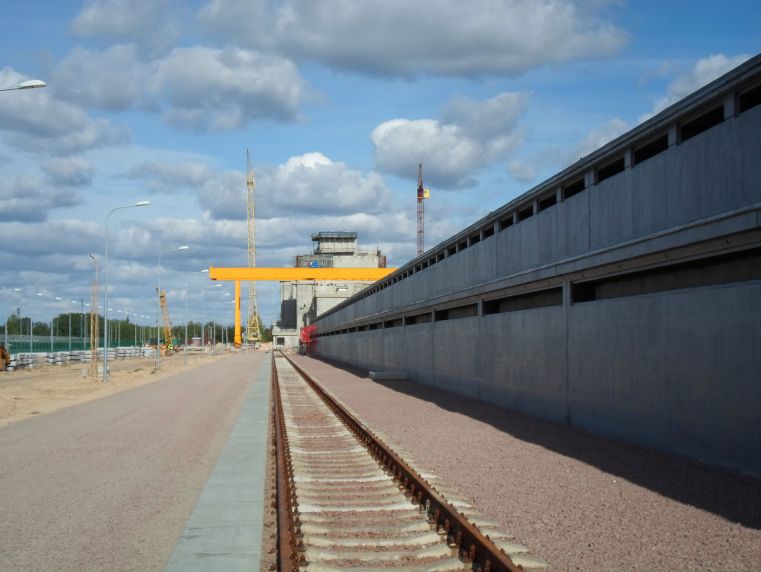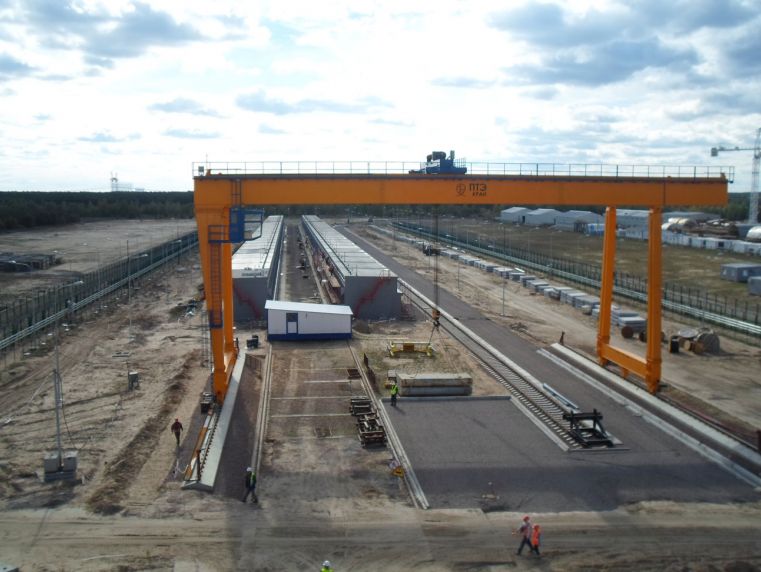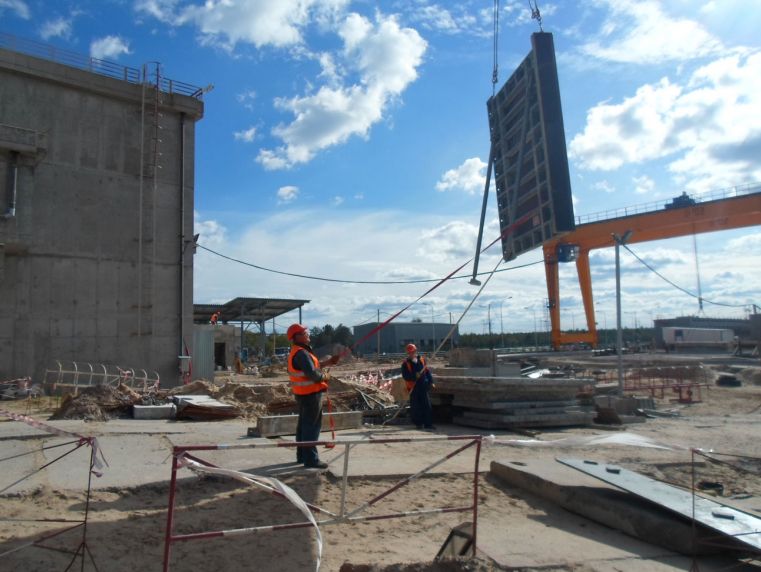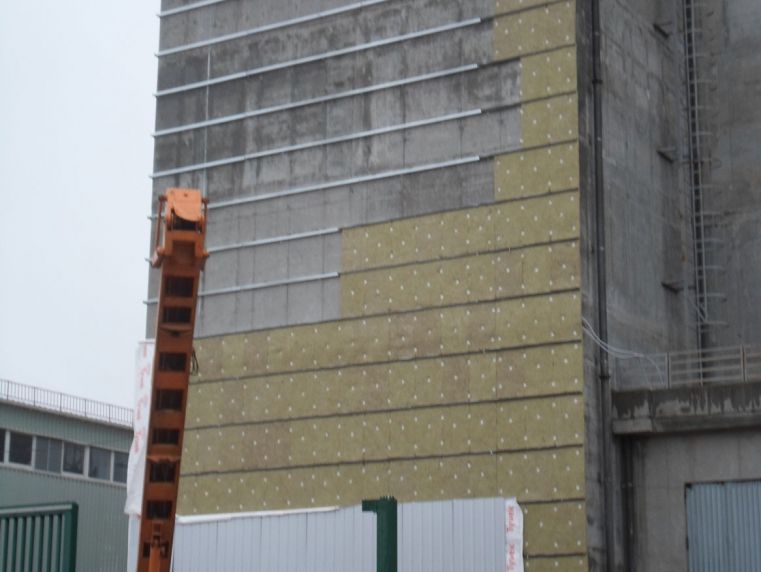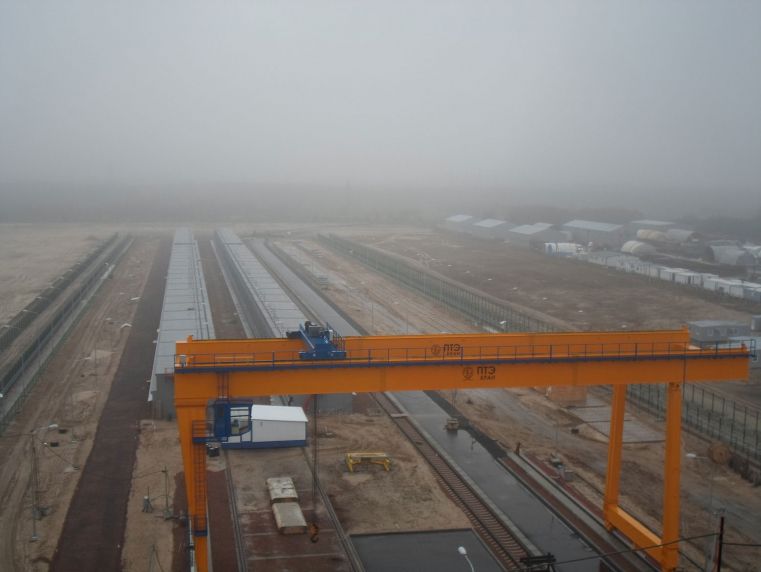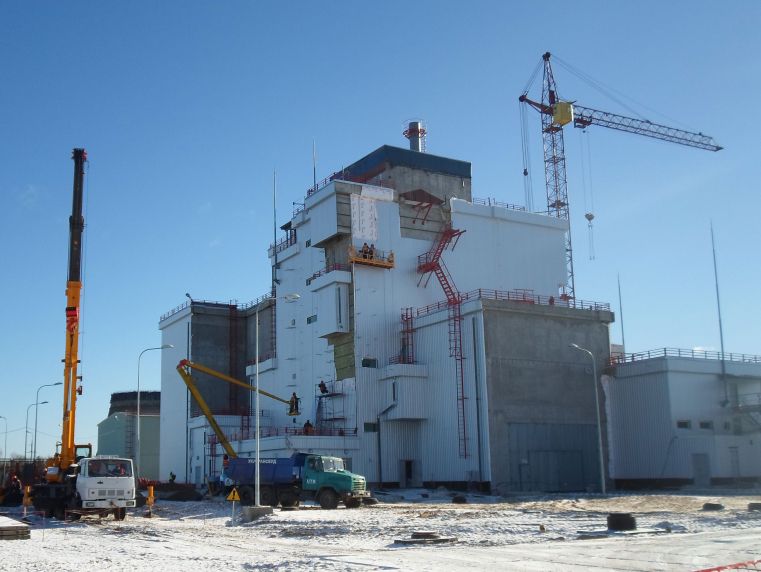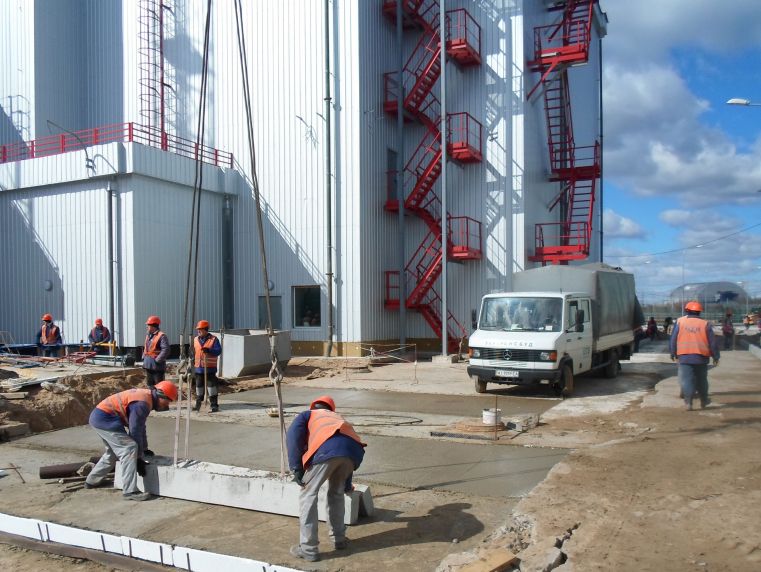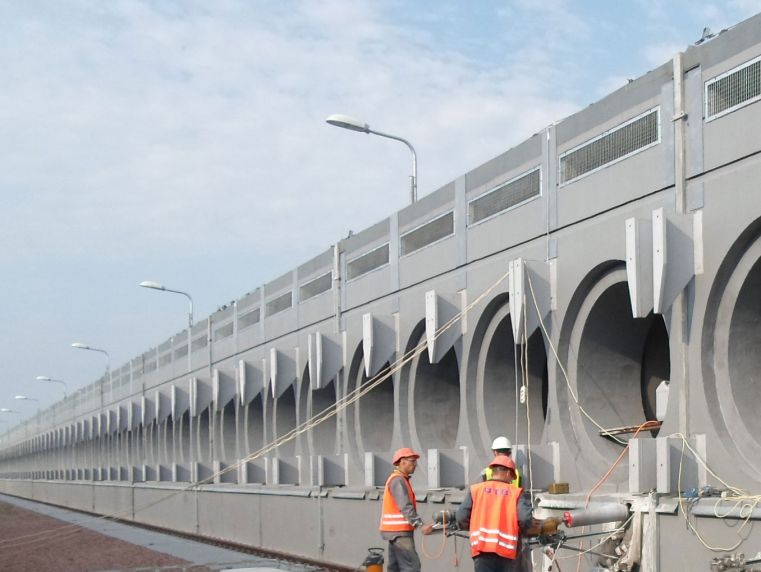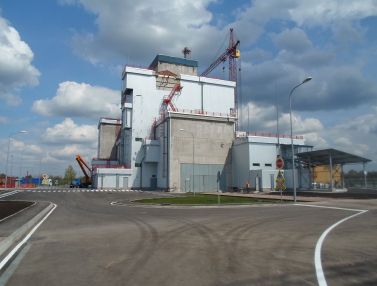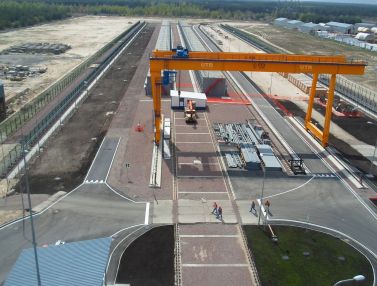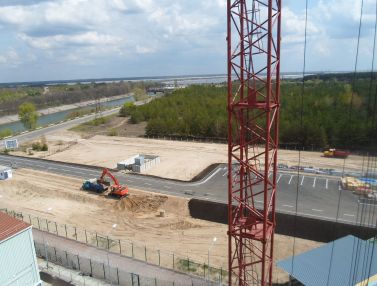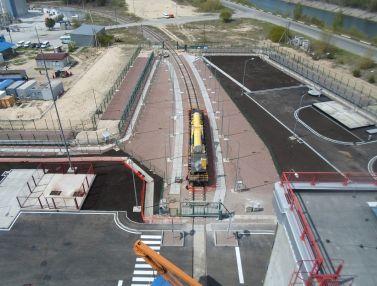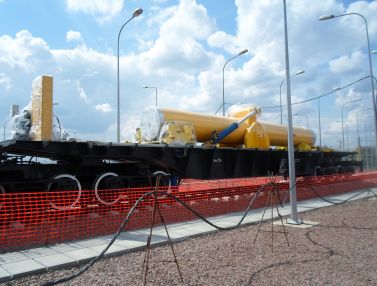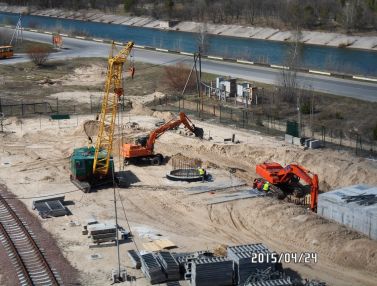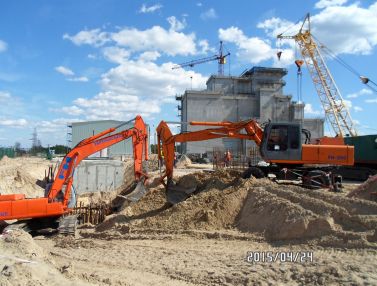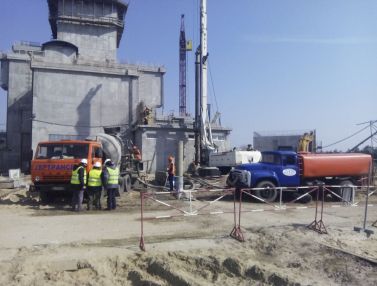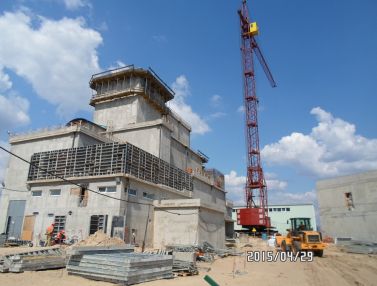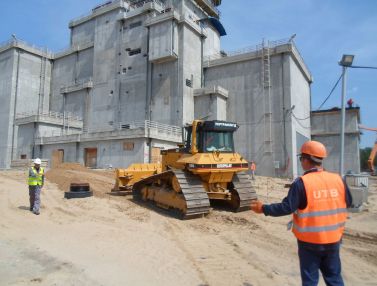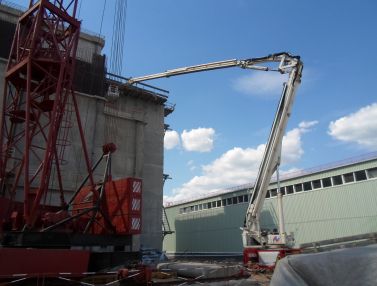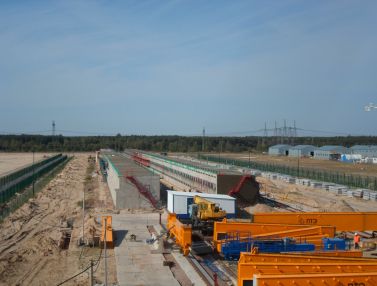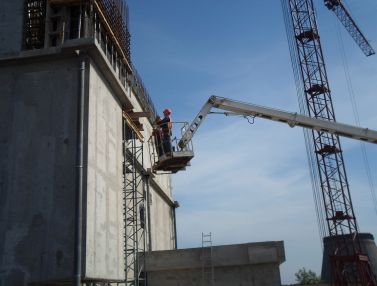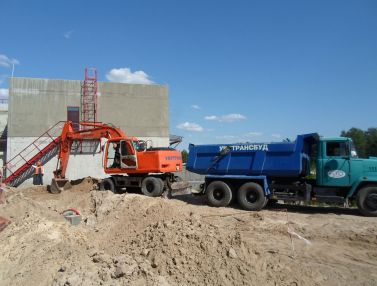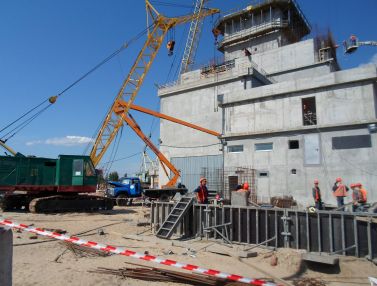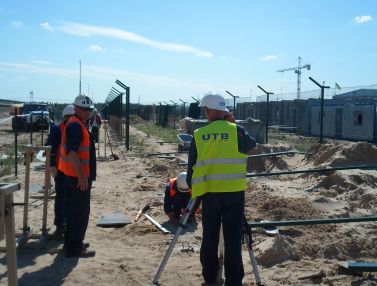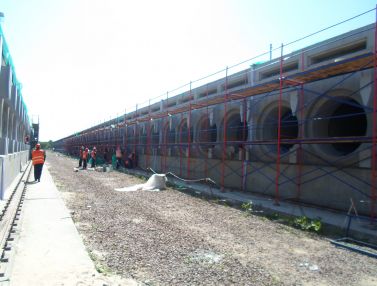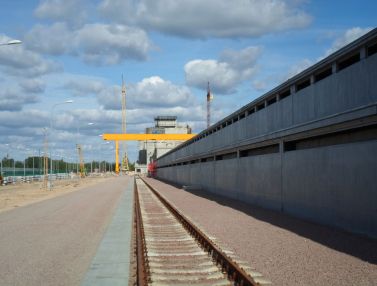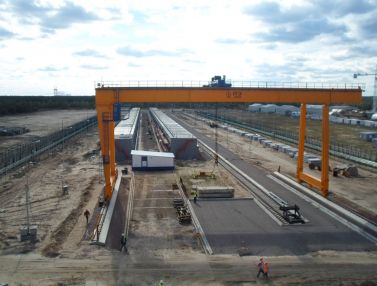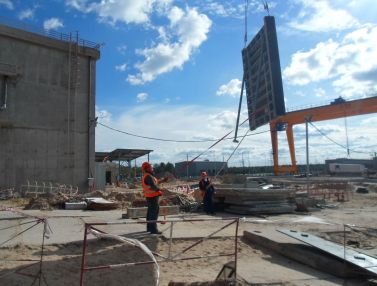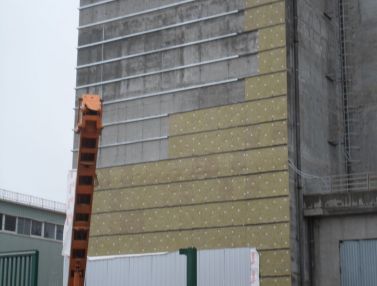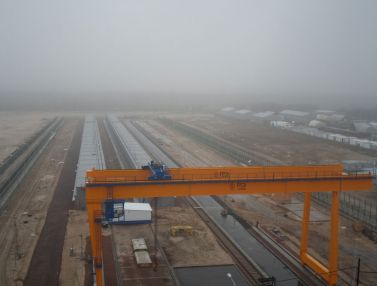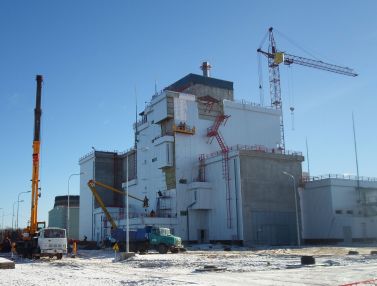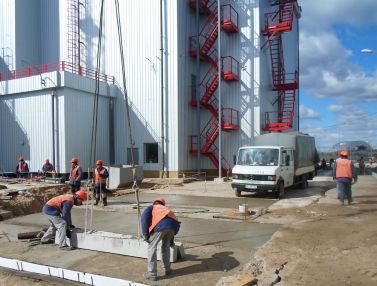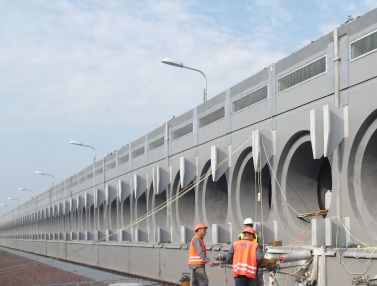Completion of construction of dry spent nuclear fuel storage (ISF-2) on the SSE Chernobyl NPP site
On August 18, 2014 a contractual agreement between a US company Holtec International (HOLTEC International) on the one part, and LLC UTEM-Engineering and corporation Ukrtransbud acting together as the "Contractor" on the other part was concluded regarding the implementation of the Project of completion of dry spent nuclear fuel storage (ISF-2) on the SSE Chornobyl NPP site.
Customer SSE Chornobyl NPP in accordance with the agreement between Ukraine and the European Bank for Reconstruction and Development on the activities of the Chernobyl Fund "Shelter" on 20.11.1997
During the period of operation of the Chernobyl nuclear power plant on its site more than 21 thousand of spent fuel assemblies (SFA) has accumulated, most of which is currently stored in the existing spent fuel storage facility (ISF-1). ISF-1 was put into operation in 1986 and its design capacity do not allow to place for long-term storage all spent fuel assemblies available at Chernobyl. In addition, the design life of ISF-1 is 30 years, i.e., in 2016, the storage should be exempted from the SFA and decommissioned thereafter.
Due to this fact, it is extremely urgent problem to create a new repository, designed for long-term storage of SFA (not less than 100 years). Construction of such a facility and moving all spent nuclear fuel into it is a prerequisite for ensuring activities on ChNPP decommissioning.
To solve this problem in 1999 a contract with a consortium led by «Framatome» (France) was awarded for the design, construction and commissioning of the dry storage facility at the Chernobyl NPP site (ISF-2) produced at the expense of the donors of Nuclear Safety Account of the European Bank reconstruction and Development (EBRD NSA). However, 2003 implementation of this project has been suspended because of his shortcomings, making it impossible to license ISF-2 and its subsequent safe operation. Given that «Framatome» did not found acceptable technical solutions to address the shortcomings of the project, the completion of the ISF-2 was entrusted to the company Holtec International (USA). Completion of the ISF-2 project involves a modification of the installation design in order to enhance its security, bringing it into line with the requirements of the existing rules of nuclear and radiation safety and reduce the risks associated with the handling and storage of SFA.
Implementation of the technical solutions proposed by Holtec International to modify the storage will significantly increase the security of the ISF-2. In particular, this will reduce the likelihood of damage to the fuel element claddings, through the use of new technologies for the preparation of fuel for storage and as a result, to reduce the potential radiation exposure to workers, the public and the environment.


